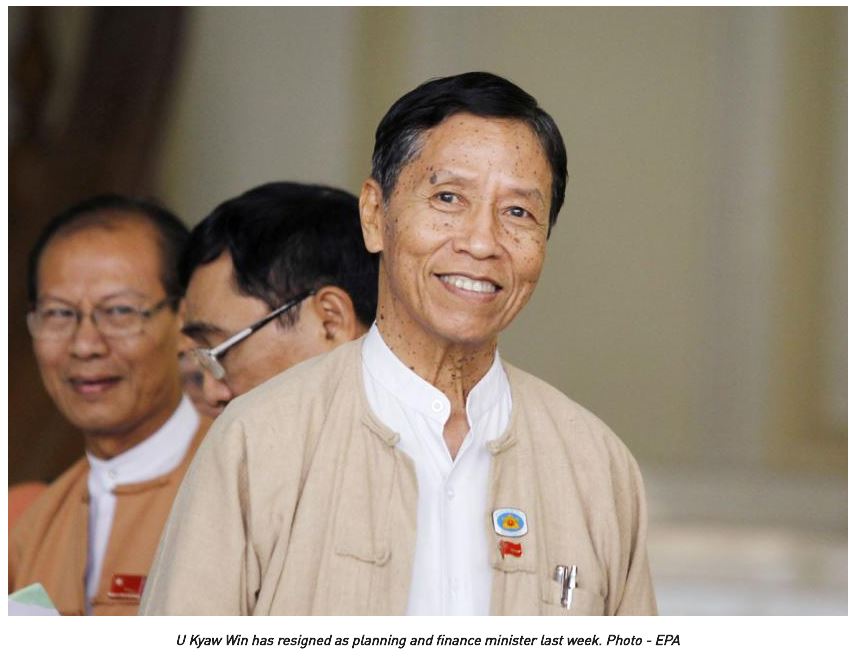Myanmar: Domestic businesses are failing, UMFCCI survey reveals
Domestic businesses are struggling to grow and many are on a downward trend, according to the latest survey conducted by the Union of Myanmar Federation of Chambers of Commerce and Industry (UMFCCI). The UMFCCI’s survey supports the findings of two previous studies conducted in the last six months by Roland Berger and the European Chamber of Commerce in Myanmar. Results from the three surveys reveal that both domestic and foreign companies are facing major difficulties in Myanmar.
The UMFCCI’s domestic business development committee and MMRD Co have published the findings of their Myanmar Business Sentiments Survey during the Business for Business (B4B) Insights Forum held at the UMFCCI office on May 26 and 27. The findings of the survey, which involved over 1,400 domestic companies, found that business has been on the decline in comparison to 2016 and expectation of improvement in the next year had fallen in comparison to last year.
The survey found that the primary reasons for falling expectations were the perception that taxes were unnecessarily high and competition exists with products illegally entering the market. 22pc of businesses involved in the survey stated they did not fully understand the tax regime.
The survey involved an evaluation of the current economic situation, measurements of expectation of development of a business in the next year, perceived rationale for why the current situation and expectation of business development was poor, a review of the tasks which needed to be conducted by the UMFCCI for domestic businesses and an evaluation and a review of the tasks which needed to be carried out by the government for domestic businesses. The survey findings were presented by MMRD Co Ltd chair U Moe Kyaw.
Bad news
The bad news is closely aligned with the two previous studies. European companies in Myanmar agreed that the domestic business environment deteriorated over the past year. According to the European chamber’s survey released last December, more than three quarters of the 70 European companies active in Myanmar rated Myanmar’s business environment as poor or needing improvement, compared to 67 percent in 2016. In 2016, some companies had rated the business environment to be very good or outstanding. In the latest EuroCham survey, not a single company believed this to be the case.
Similarly, the second Myanmar business confidence survey conducted by Roland Berger in partnership with the UMFCCI in the latter half of 2017 reveals that short-term business sentiment plummeted to just 49 pc between June and August 2017 compared to 73pc a year ago.
“The drop of 25pc is shocking. I am honestly surprised that the drop was by this much,” Southeast Asia managing partner of Roland Berger Thomas Klotz told The Myanmar Times in December. The survey involved almost 600 companies, 60pc of which were local.
More than three quarters of the companies surveyed cited poor implementation or the lack of a clear economic policy as the main reason for their waning confidence in the economy led by State Counsellor Daw Aung San Suu Kyi. In fact, it seems that this is a significant challenge faced by 86pc of the international firms surveyed and the number one challenge overall. As such, this is likely to be the root cause of the failure of foreign direct investments to grow significantly.
At the time the survey was conducted, the crisis in Rakhine had not yet taken place. The subsequent developments are likely to have further reduced investor confidence in the country. Other problems contributing towards the drop in investor confidence include the lack of trained staff, unpredictable legislative environment and selective and unpredictable enforcement of regulations, the Roland Berger study suggested.
Earlier this week, the government nominated U Soe Win as the next planning and finance minister, with the hope that he can pick up the baton swiftly and restore confidence to an increasingly frustrated business community.
Last year, then-minister U Kyaw Win proclaimed that Myanmar’s economy is like a plane at full throttle down the runway, ready to take off. “Myanmar is like a plane running on the runway in 2016, but it is ready to take off in 2017. We will prevent [tackle] the monopoly which has persisted in Myanmar due to years of protectionism,” U Kyaw Win said. His resignation from the ministerial position was approved by the president last week.
Source: https://www.mmtimes.com/news/domestic-businesses-are-failing-umfcci-survey-reveals.html


 English
English




